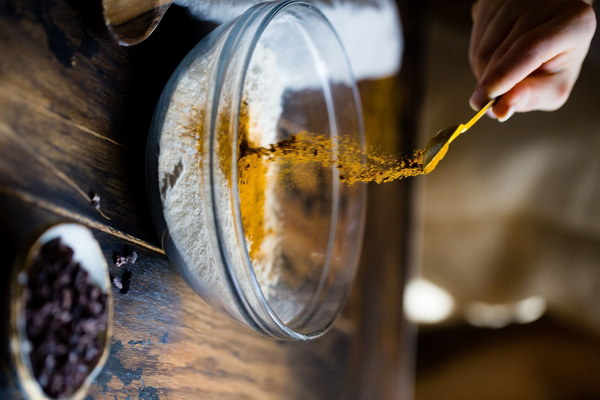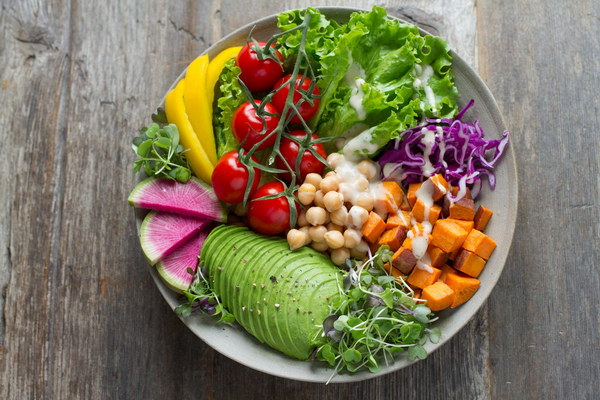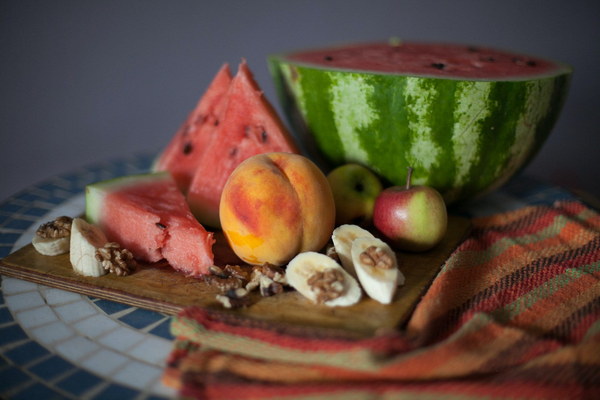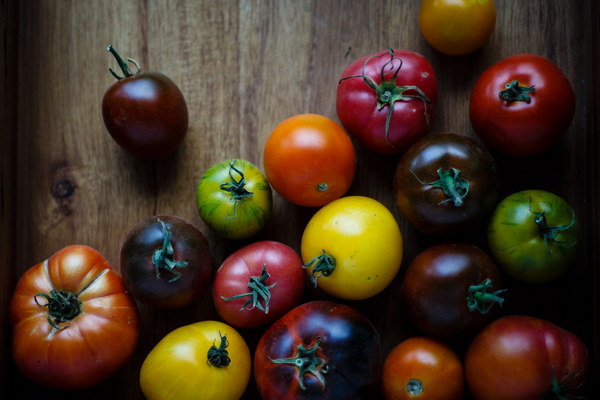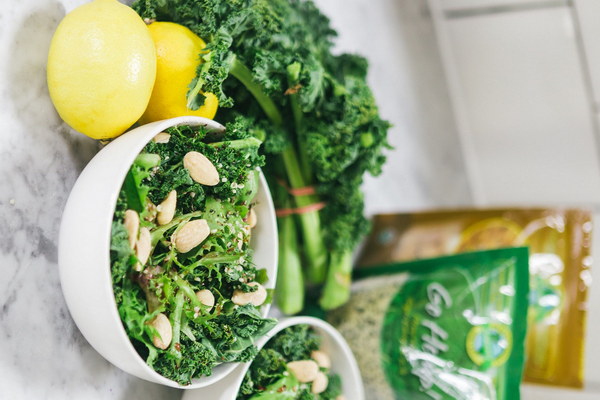Reviving Ancient Wisdom The TimeTested Tradition of Chinese Herbs and Foods for Health and Longevity
In a world that is increasingly becoming fast-paced and stressful, the allure of ancient traditions that promote health and longevity is more appealing than ever. Among these traditions is the practice of Chinese herbal medicine and food therapy, a method of healing that has been passed down through generations, offering a unique and holistic approach to wellness. This article delves into the rich heritage of Chinese herbs and foods for health and longevity, exploring the principles behind this traditional practice and how it can be integrated into modern life.

The foundation of Chinese herbal medicine and food therapy lies in the concept of Yin and Yang, the ancient Chinese philosophy that suggests the universe is composed of two complementary forces that must be balanced for health and well-being. This principle is applied to the body, with the goal of restoring balance and harmony to maintain vitality and longevity.
One of the most significant aspects of Chinese herbal medicine is the use of natural ingredients that have been carefully selected for their therapeutic properties. These ingredients include a wide range of herbs, roots, barks, and minerals, each with its unique qualities. For example, Ginseng is known for its energy-boosting properties, while Astragalus is revered for its immune-boosting effects.
In addition to herbs, the Chinese have long recognized the importance of food as a source of healing. Traditional Chinese cuisine is rich in diverse ingredients that offer a multitude of health benefits. Here are some key components of this nutritional approach:
1. Five Elements: Chinese food therapy is based on the concept of the five elements—wood, fire, earth, metal, and water—which correspond to different organs and body systems. By incorporating foods that align with these elements, individuals can maintain a balanced diet that supports overall health.
2. Seasonal Eating: The Chinese believe that consuming foods that are in season can help the body adapt to the changing environment and maintain health. For instance, during the cold winter months, warming foods like soups and stews are recommended, while in the hot summer, cooling foods like salads and cold drinks are preferred.
3. Herbal Teas: Traditional herbal teas are a popular way to incorporate the benefits of Chinese herbs into one's daily routine. These teas can range from soothing chamomile to invigorating green tea, each offering a unique set of health benefits.
4. Balanced Diet: A balanced Chinese diet emphasizes the consumption of a variety of foods, including grains, vegetables, fruits, meats, and seafood, ensuring that the body receives a wide array of nutrients.
5. Cooking Techniques: Traditional Chinese cooking methods, such as steaming, boiling, and stir-frying, help to preserve the nutritional value of ingredients and minimize the loss of essential vitamins and minerals.
Integrating Chinese herbs and foods into one's daily routine can lead to numerous health benefits, including improved digestion, enhanced immune function, increased energy levels, and a reduction in stress. Here are some practical tips for incorporating this ancient wisdom into modern life:
1. Seek Professional Guidance: It's essential to consult with a qualified herbalist or nutritionist before starting any new herbal or dietary regimen to ensure that it is appropriate for your specific needs and health conditions.
2. Experiment with Herbs: Begin by exploring the various Chinese herbs and incorporating them into your daily life. Start with common ingredients like ginger, turmeric, and ginseng, and gradually introduce more exotic options.
3. Incorporate Traditional Recipes: Try your hand at traditional Chinese recipes that feature ingredients known for their health benefits. From soups to stir-fries, there's a wide array of delicious dishes to choose from.
4. Stay Hydrated: Drink plenty of water throughout the day, and consider adding a slice of lemon or ginger to your water for an extra boost of flavor and nutrients.
5. Practice Mindful Eating: Savor your meals and pay attention to how different foods make you feel. This mindful approach to eating can help you make more informed choices about your diet.
In conclusion, the tradition of Chinese herbs and foods for health and longevity is a testament to the wisdom of our ancestors. By embracing this ancient practice, we can tap into the time-tested benefits of nature's healing power and lead healthier, more vibrant lives.
